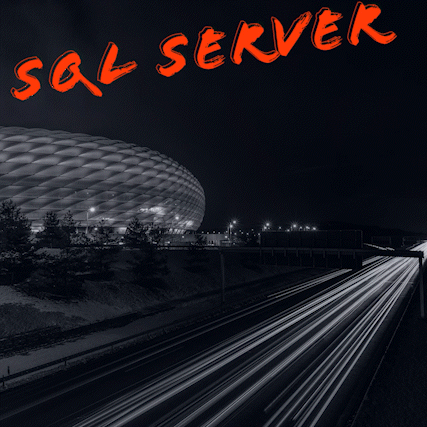Wait statistics, in the context of SQL Server, refer to the amount of time that a query spends waiting to access data in the database. When a client application requests data from the database, the request is placed in a queue and the client application must wait for its turn to access the data. The time that the query spends waiting is called a "wait" and is tracked by SQL Server. This information can be used to identify potential performance bottlenecks and optimize the performance of the database. Wait statistics are commonly used by database administrators to diagnose and troubleshoot performance issues in SQL Server.
In SQL Server, different wait types help database administrators identify where processing might be slowing down. One specific wait type, SQLTRACE_PENDING_BUFFER_WRITERS, is related to SQL Server tracing and indicates that SQL Server is waiting to write trace data to a file. This wait type can appear when SQL Server is logging events or activity, especially when SQL Trace or Extended Events are enabled for monitoring. In this post, we’ll explain what SQLTRACE_PENDING_BUFFER_WRITERS means, when it occurs, and how it can affect SQL Server performance.
What Is the SQLTRACE_PENDING_BUFFER_WRITERS Wait Type?
The SQLTRACE_PENDING_BUFFER_WRITERS wait type occurs when SQL Server is waiting to write trace data from a memory buffer to a trace file on disk. SQL Server uses tracing to capture information about database activity, performance metrics, and events like errors or long-running queries. This trace data is first stored in memory buffers and then written to disk periodically.
When SQL Server is waiting on SQLTRACE_PENDING_BUFFER_WRITERS, it indicates that the system is trying to move data from memory to disk but is delayed. This wait type is often associated with SQL Trace, Profiler, or Extended Events, which collect and store trace data. If there is a bottleneck in writing this data to disk, SQL Server records a SQLTRACE_PENDING_BUFFER_WRITERS wait, meaning that it’s temporarily holding trace data in memory until the file write completes.
When Does SQLTRACE_PENDING_BUFFER_WRITERS Appear?
The SQLTRACE_PENDING_BUFFER_WRITERS wait type typically appears in environments where SQL Trace, Profiler, or Extended Events are running, particularly during heavy tracing activity. Some common scenarios where this wait type may occur include:
- High Trace Activity – When a trace captures a large volume of events, SQL Server may experience delays writing all the trace data to disk, leading to this wait type.
- Slow Disk Performance – If the storage drive where trace data is written is slow, SQL Server may experience more SQLTRACE_PENDING_BUFFER_WRITERS waits as it waits to write trace data.
- Limited Memory Resources – In cases where memory is constrained, SQL Server may struggle to hold trace data in memory, leading to more frequent waits as it waits to clear the buffer.
These waits are more likely to appear in environments with heavy monitoring or in systems with slower storage, where SQL Server cannot write trace data to disk quickly enough.
Why SQLTRACE_PENDING_BUFFER_WRITERS Waits Matter
While SQLTRACE_PENDING_BUFFER_WRITERS waits are common during trace activity, prolonged or frequent waits can impact SQL Server performance. If SQL Server’s memory buffers fill up while waiting to write trace data, it may reduce available memory for other tasks and potentially delay query processing. High SQLTRACE_PENDING_BUFFER_WRITERS waits may signal:
- Excessive Tracing – Capturing too much detail in a trace can lead to a backlog, with SQL Server waiting to write the data.
- Disk I/O Bottlenecks – Slow disk performance on the drive used for trace files can increase wait times as SQL Server struggles to write trace data quickly enough.
- High Memory Demand – In systems with limited memory, holding trace data in buffers may affect memory availability for other SQL Server operations.
How to Address SQLTRACE_PENDING_BUFFER_WRITERS Waits
If you are seeing frequent SQLTRACE_PENDING_BUFFER_WRITERS waits, consider these strategies to reduce their impact:
- Limit Trace Scope – If using SQL Trace or Extended Events, limit the trace to capture only essential events. Avoid tracing every detail as it can quickly overwhelm the buffer and create write delays.
- Use Faster Storage for Trace Files – Placing trace files on a faster storage drive (such as SSD) can help SQL Server write trace data more efficiently, reducing wait times.
- Reduce Trace Duration – Keep trace sessions as short as possible. Only enable tracing when actively monitoring an issue, and disable it when not needed.
- Monitor Memory Usage – Ensure adequate memory is available to handle trace data buffers. Adding more memory may help in high-demand systems where frequent tracing is required.
- Consider Using Extended Events – Extended Events is a lighter-weight alternative to SQL Trace that generally uses fewer resources and may reduce SQLTRACE_PENDING_BUFFER_WRITERS waits.
Conclusion
The SQLTRACE_PENDING_BUFFER_WRITERS wait type in SQL Server indicates that the system is waiting to write trace data from memory buffers to a file on disk. While these waits are expected during tracing activities, high or prolonged waits can indicate bottlenecks in disk performance, excessive tracing, or memory constraints. By optimizing trace settings, using faster storage, and minimizing trace duration, you can help reduce SQLTRACE_PENDING_BUFFER_WRITERS waits and maintain SQL Server performance.
If you need assistance with SQL Server performance tuning, tracing strategies, or optimizing Extended Events, Stedman Solutions offers managed services to ensure your SQL Server environment runs efficiently and effectively.

Find out more about our SQL Server Managed Services
Applies to
Related Waits
SQLTRACE_BUFFER_FLUSHSQLTRACE_FILE_BUFFER
SQLTRACE_FILE_READ_IO_COMPLETION
SQLTRACE_FILE_WRITE_IO_COMPLETIO
SQLTRACE_FILE_WRITE_IO_COMPLETION
SQLTRACE_INCREMENTAL_FLUSH_SLEEP
SQLTRACE_SHUTDOWN
See Also
All Wait Types

